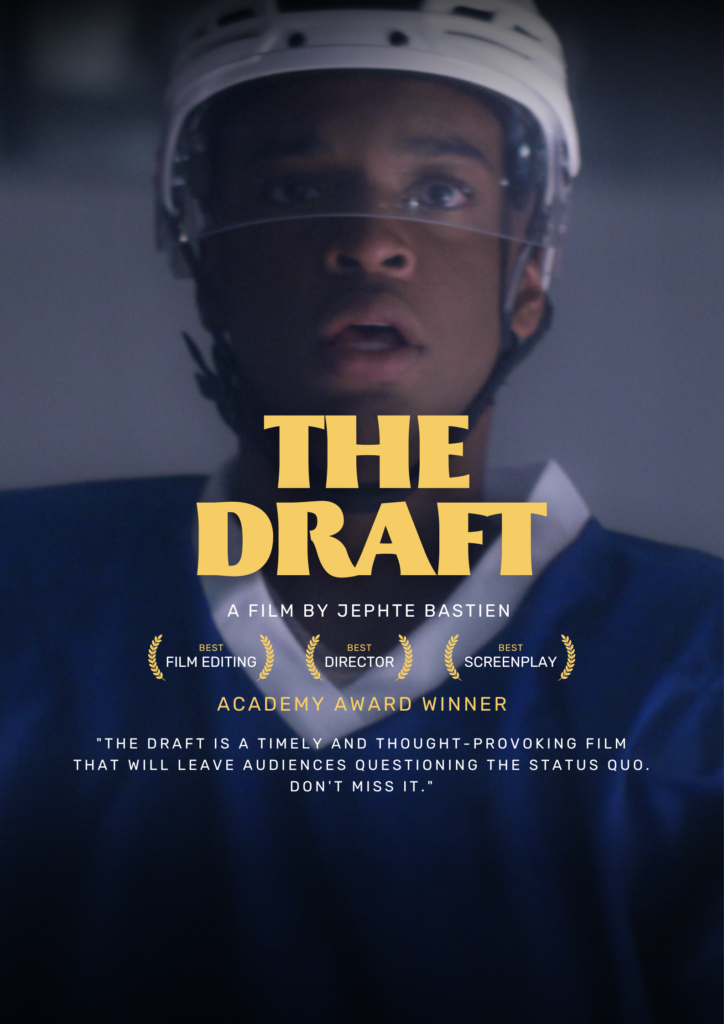TVM: I have the pleasure speaking with whom some would say is the Godfather of independent music marketing, Bob Baker. Bob, how are you today?
Bob Baker: I’m doing great, thanks.
TVM: Good to hear. How did you get your start in the music industry?
Bob Baker: Well, I started like a lot of people as a musician. Back in my teens I started playing the guitar and singing in rock n roll bands, so I had a lot of the same ambitions that a lot of people at that age had. I worked as a full time musician in the 80s but, at the same time, I had this interest in writing and the written word. In addition to my love of writing, I also had an entrepreneurial spirit; I just knew I wasn’t going to be happy working a traditional 9 to 5 job. In my mid-twenties, I started publishing a local music newspaper in my hometown of St. Louis, Missouri for 10 years. During this period, my first book was published and I began writing columns in my paper advising musicians on how to book gigs, attract fans, make more money, etc. By the end of the run of the newspaper, I had pretty much decided that being an author, teacher, and speaker was where my future was. So I put the paper to bed and began using the internet as means of communicating with my readers. I actually had taken the independent route with publishing my book; I didn’t seek or worry about book publishers, retail stores, or libraries. I started spreading articles on the internet and building a following.
TVM Wow, that’s awesome. How long have you been working in music marketing?
Bob Baker: Since 93’ which is also when the first book came out and when I became more active locally through writing columns, workshops, etc. Initially, I had no credibility or reputation as a music marketing expert. What I did, is set up panels, in which I would gather up local music journalists and I would be the moderator; I would be fielding questions in addition to asking questions of my own. A few months later I would get together a group of people that were talent bookers at local venues. By association, being the resource that put these events together, I was beginning to build a reputation, locally, as a music marketing guy and once I got online, I just took that message and spread it.
TVM: Interesting, how would you describe your marketing style?
Bob Baker: Well, I guess there’s two ways to look at that question, my own marketing style and then there’s a style that I recommend that people do. I think that one of the things that I bring to this topic is that I’m a musician myself, so I’m not just dictating from the sidelines; I’ve actually been in the trenches by playing hundreds of thousands of gigs over the years. I know what it’s like to be in the shoes of my reader and I come at marketing with a conversational tone. Music marketing can, at times, be somewhat confusing and frustrating, so I try my best to break it down so that people can be more familiar and comfortable with it.
TVM: So kind of like, ‘Oh! It’s do-able!’?
Bob Baker: Exactly! I give people plenty of examples and steps that they can take. I like to think that I demystify the topic of music marketing. Really, if you’ve ever been a music fan, purchased a cd, or attended a concert, you know a lot more about music marketing than you think. The only difference, as an artist, is learning to re-apply those concepts. I also advise that people lighten up about marketing when it comes to their own style. A misconception of marketing is that people think that you have to be this salesy person who is boastful and there’s some elements of those but really it’s more about being authentic and being eager to share your music with the people.
TVM: Right…what are your responsibilities as a music marketer?
Bob Baker: I wouldn’t refer to them as responsibilities; that’s something that I would apply to more of a day job. When you work for yourself, which I have been doing for most of those 20 years, but I’ve had to work, like a lot of musicians, to make ends meet but for the past decade now, I’ve been completely self employed. So you have to have a lot of self discipline when it comes to your responsibilities and so I look at it as the things I need to do reach more people and generate enough revenue to make a living. The things that I do on a regular basis are, blogging, which I have been doing since 2004, podcasts, and videos…I’m on Youtube. In my world, I’m an information publisher in the music world, so my responsibilities are continually sharing my advice and content in the places where my readers are going to find it. It’s a similar list of responsibilities that musicians, songwriters, and singers would have in that, you want to share pieces of who you are online in the place where your fans are going to find you.
TVM: That’s rather insightful. Well, what do you look for in an artist to market? What are some factors that may determine whether or not your will work with them?
“Another mistake is putting the medium before the message.”
Bob Baker: That question doesn’t really apply to me specifically, because, again, I am more of an information resource. I do a little bit of short term consulting but I don’t really take on artists in the sense that you have to go through some process and past the test (laughs), or whatever. I don’t represent artists or handle marketing campaigns. If somebody wants to consult with me, generally, there’s no specific criterion. Artists that I prefer to work with, however, are those that understand what needs to be done. They’re not afraid to get their hands dirty and do some of the work, they are talented and ready to work to build that fan base; they understand that success is a long term process.
TVM: In terms of the artists that you have consulted with, do they have similar music styles or varied ones?
Bob Baker: They are very diversified! I’ve worked with musicians from hip hop, to rock, jazz instrumentalists, etc. My personal taste is pretty wide and varied. I grew up on rock n roll and power pop, which is my personal favourite. But, I enjoy working with anyone who is doing good work and who are eager to embrace building their careers.
TVM: Well alright then. Tell us about the challenges, if any, in music marketing today?
Bob Baker: Basically, especially when you’re starting out, the challenge is a combination of things but it’s easy to be overwhelmed. We live in an amazing era where there are opportunities at the average artist’s fingertips that were not available 5 or 10 years ago. Things like distribution or reaching an artist used to be tools that were available to a few, exclusive people and now everyone has access to those tools. It is a great thing but it is also a bad thing because everyone has access to those tools and everyone has access to those tools, because it seems as if everyone is out there promoting their music so it becomes a crowded marketplace. All these things and technology can confuse an artist; it’s like, “how do I find the time to do all of this and still produce good music?” That’s the challenge. I’d like to remind everyone that there is a communal frustration because everyone faces that challenge; I mean I read about artists, all the time, who have these viral videos that have garnered such success from them. You just have to focus your attention on serving a niche audience and gathering a following, which can get the attention of the right people.
TVM: What are some common mistakes that you notice some artists make when attempting to market themselves?
Bob Baker: One problem is thinking that you have to have everything perfect before you step out to take action. I know a lot of people who purchase my books or consult with me think that they need to know the exact path so that they don’t get anything wrong. That’s a mistake because you will never know and so the key is to just take action and learn by doing. Taking action leads to the feedback from the world and your fans that will dictate your next steps. Another mistake is putting the medium before the message. What I mean by that is, some artists will have an album and they start thinking about the tools they will use to promote it; Facebook, Twitter, press release, etc and they forget about what message it is that they want to send. You need to stop and really think about that message. You need to think of ways to make what you’re promoting interesting to make it stand out.
TVM: When do you think an artist should seek out a music marketer? At what stage in their career?
Bob Baker: There’s a lot of discussion about getting help with music marketing and I think that’s why a lot of independent artists think that a record deal is a solution because record companies have a staff of people who will handle that for you. But the truth is, I know dozens of artists who have been signed and they are actually disappointed by what the label does to help market them so that isn’t always the solution. My recommendation is that the earlier you are in your career, the more you should do most of it yourself. It’s important to really understand how to market your own music so that when you get to the point where you can delegate the task to someone else, you know what needs to be done and have a realistic expectation of what can be done. You also become an educated entrepreneur and as a musician, that’s what you should be. Also, even before you seek out any help, it is important that you educate yourself. Through buying books, reading blogs, online courses, etc. As well, through building your fanbase, you can also employ the help of superfans who will share your music for free.
TVM Interesting idea! What are some of the pros and cons working in music marketing?
Bob Baker: Pros are getting more involved in music that you care about by being part of their success story in more of a hands on kind of way. For anyone wanting to look into music marketing as a profession, maybe start off with friends of yours or bands that you admire and asking them if you could help. You may not be paid for it at first, they may or may not have the budget but you can gain experience and make some connections. The cons are that the music business is seen as a glamorized career and therefore a lot of people vie for it which makes it difficult to be financially successful. You have to be willing to put in the time to make yourself stand out and sometimes work for little or no money for a while in hopes that someday you will make some money.
TVM What advice can you give to any up and coming artists looking for a little marketing guidance in their career?
Bob Baker: My mantra for years has been: FOCUS ON FANS. Having a great fan base is crucial to a successful career because they are the people who spend their money on your shows, cds, and spread the word about your music. There’s a duo called Karmen, Amy and Nick, two years ago one of their videos went viral and they started getting offers from record labels. They have since had Billboard hits, been on Saturday Night Live and all these different shows. But before their video went viral they were so active in cultivating a relationship with their fan base through social media and I think that’s what set them up for the success that followed. Don’t worry about record labels, A&R people and such; know who you want to reach with your music/your ideal fan and how can you develop a relationship with them and get them on a mailing list which is very important.
TVM: Great! Lots of advice; thank-you. Where and how can our readers find out more about you?
Bob Baker: thebuzzfactor.com, musicpromotionblog.com are the two main sites that I have.
TVM: Bob Baker, it’s been a pleasure.
Bob Baker: You’re welcome.


 Business3 years ago
Business3 years ago
 Business2 years ago
Business2 years ago
 Business2 years ago
Business2 years ago
 Business3 years ago
Business3 years ago
 Business3 years ago
Business3 years ago
 Business3 years ago
Business3 years ago
 Business3 years ago
Business3 years ago
 Business3 years ago
Business3 years ago






































